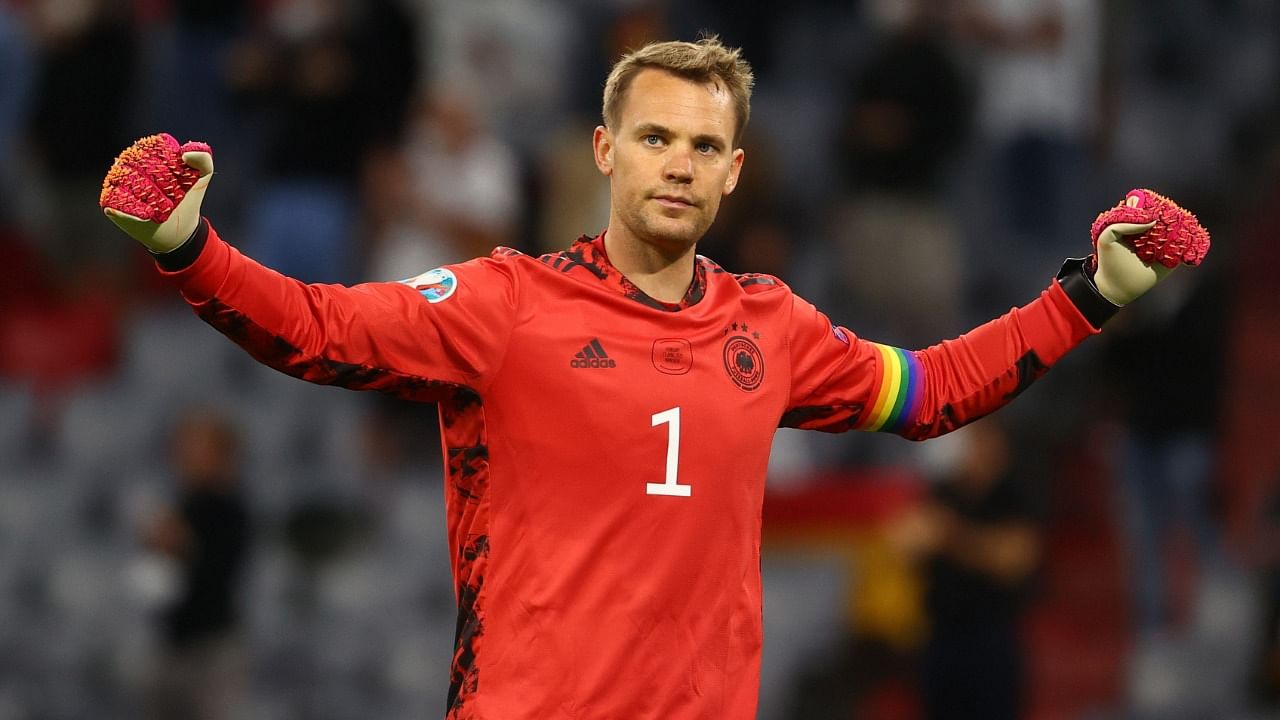
Back in April, when the world's wealthiest clubs had decreed to "save football" through the European Super League, UEFA and its president Aleksander Čeferin were swift to condemn the revolutionary breakaway. Čeferin, posing as the vanguard of resistance, had observed that "competition structures (like the Super League) give with one hand while taking away with five. Solidarity, and not self-interest, must prevail." By standing up to the Super League, UEFA had suddenly become the safe keeper of the beautiful game, defiantly challenging the avarice of superclubs. Or so UEFA thought.
Not a matter of pride
To enhance its self-supposed image as the guardian of football, UEFA made the headlines again during the ongoing European Championships. Its first headline-grabbing move was a conscious choice to let matters drift following overt displays of homophobia by Hungarian fans at Budapest's Ferenc Puskás Stadium before belatedly launching an investigation without any statement of solidarity towards the LGBTQI+ community.
Then came a bewildering choice to "look into" German captain Manuel Neuer's rainbow armband (which he sported during recent matches) to assess whether Neuer's gesture (during Pride month) had offended (UEFA did not bother mentioning to whom). UEFA's peculiar actions sparked social media outrage, with Thomas Hitzlsperger, the gay former German international, tweeting, "Come on, UEFA...you can't be serious, can you?" UEFA subsequently buried the issue.
Another baffling move followed in which UEFA rejected permission to illuminate Munich's Allianz Arena with rainbow colours during Germany's clash with Hungary. UEFA, whose official tweets from yesteryears have celebrated Pride, declined the lighting request since it is "a politically and religiously neutral organisation" (maybe outlawing national anthems before kick-off is next on the agenda). UEFA also cited that a stadium decked in the hues of the rainbow would send "a message aiming at a decision taken by the Hungarian national parliament." This decision pertains to a law passed by the Hungarian parliament that bans the depiction of homosexuals in school materials or television shows for minors.
Hobnobbing with strongmen
In March 2020, the UEFA executive committee allotted the 2022 final of the Europa League, UEFA's second most important club competition, to Budapest (the 2021 edition was in Poland's Gdańsk). In addition, it handed the 2023 Super Cup to Russia and named Minsk, the Belarusian capital, as the venue for the 2021 UEFA Congress (later scrapped due to Covid-19).
Ever since Čeferin, a Slovenian, took over as UEFA president in 2016, there has been a slow but sure pivot towards nations in eastern Europe. In theory, such an orientation brings with it chances of empowering the second string of European football. In practice, however, this has meant UEFA cosying up to strongmen such as Hungary's Viktor Orbán, Poland's Andrzej Duda, Belarus's Alexander Lukashenko, and Russia's Vladimir Putin.
None of these associations with obviously anti-democratic regimes has come with any caveats from UEFA, caveats that could have addressed the suppression of mass protests in Belarus and Russia or the discrimination against the LGBTQI+ community in Hungary and Poland. Instead, as always with UEFA, priorities remain strictly commercial.
Morally bankrupt
Why should an organisation in charge of regulating football care about marginalised communities, democratic dissent or other building blocks of civic society? Is simply doing what is best for football or business (the same thing nowadays) not good enough?
The short answer to this is no. But, like any other sport, football is not played in a societal vacuum, and organisations like UEFA, which enjoy massive leverage and visibility, cannot abandon all civic responsibility.
After all, how can UEFA claim to be acting in spectators' interest if they do not create an inclusive environment for all at football stadiums? How can UEFA protect players' rights if their rights as citizens are endangered in the first place? How can UEFA pose as a body with moral scruples and keep tweeting sweet-nothings if they lack the courage to walk the walk when it matters?
The problem, of course, is not just with UEFA. Federations across sports have been repeatedly exposed as morally bankrupt even as their coffers get heavier by the day. But with social media activism gaining momentum and players and fans becoming more outspoken by the day, it remains to be seen how much longer organisations like UEFA can sustain their tryst with hypocrisy.
Sooner or later, it seems inevitable that governing bodies will have their reckoning with basic governance principles.
(The writer is a freelance journalist writing on politics, culture and sport)
Disclaimer: The views expressed above are the author’s own. They do not necessarily reflect the views of DH.